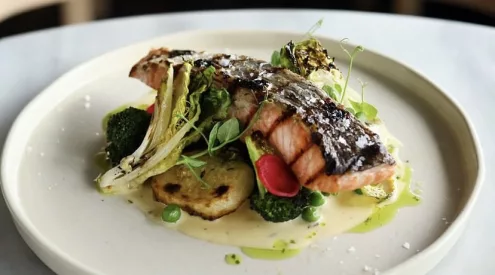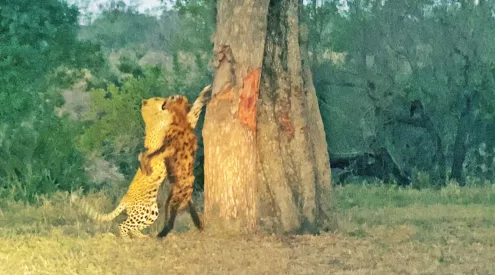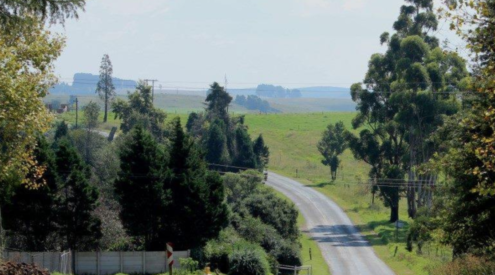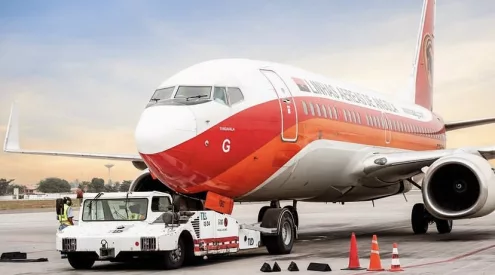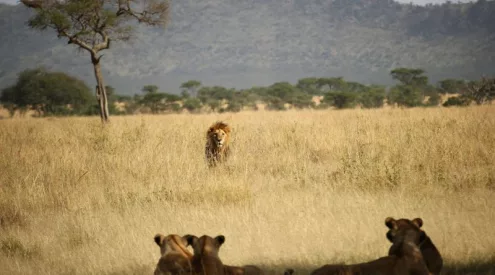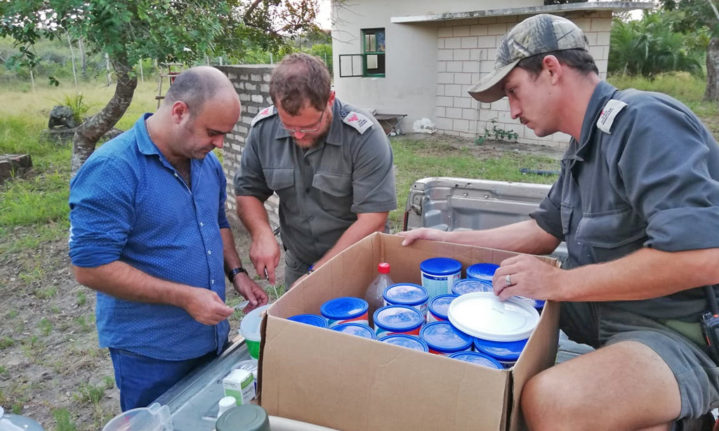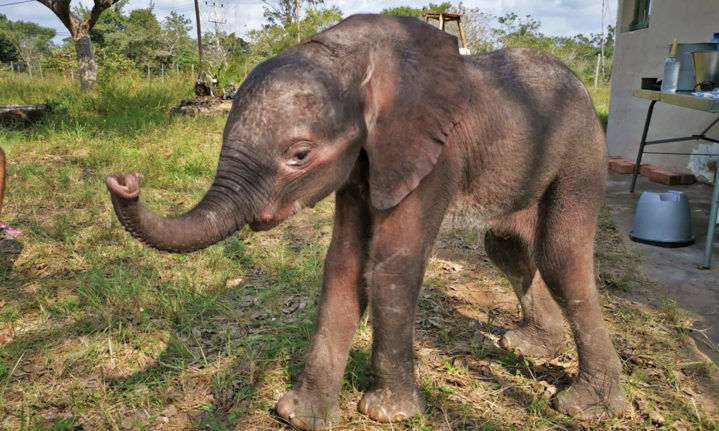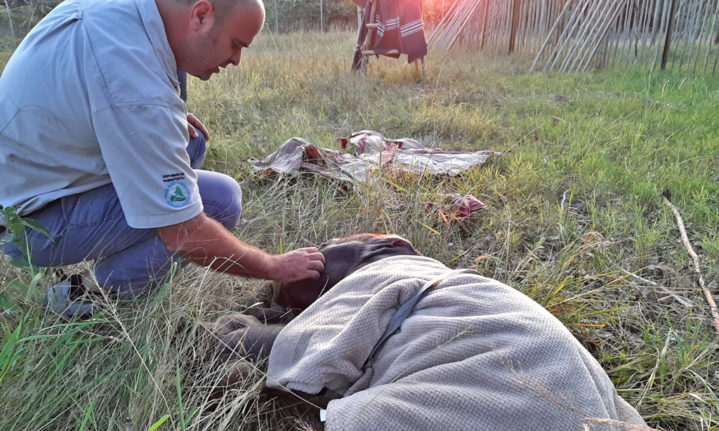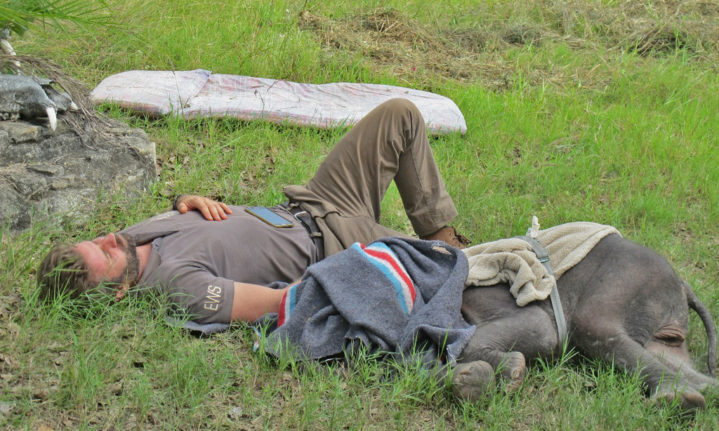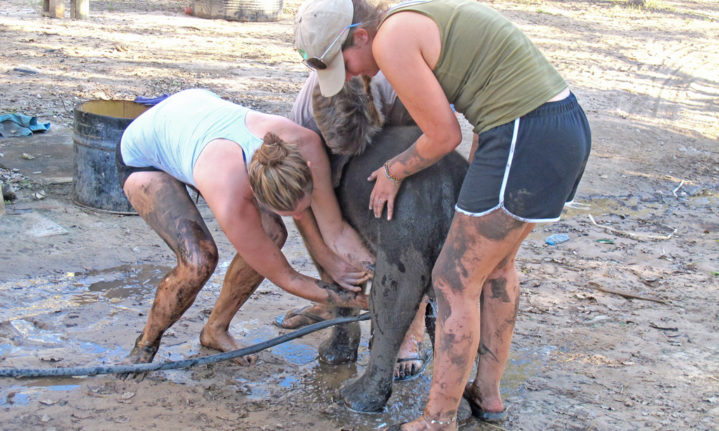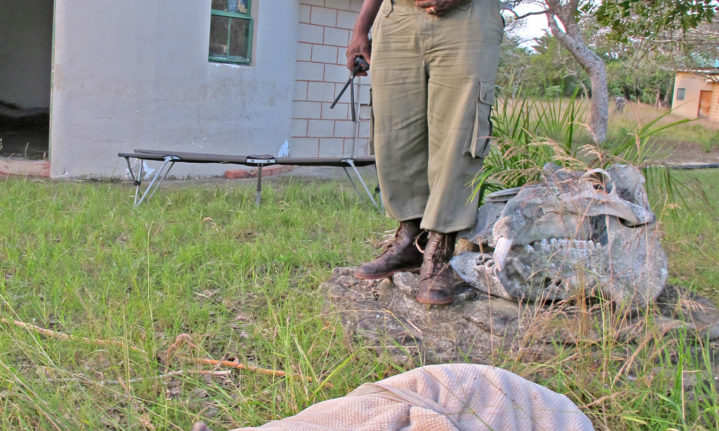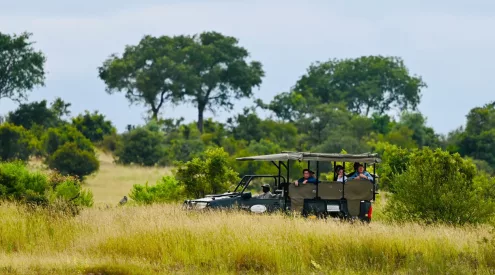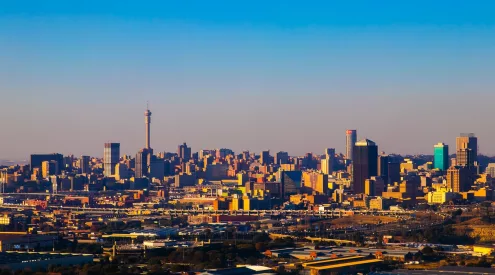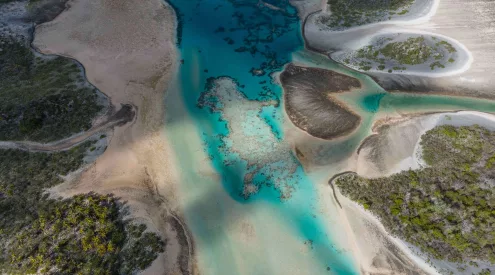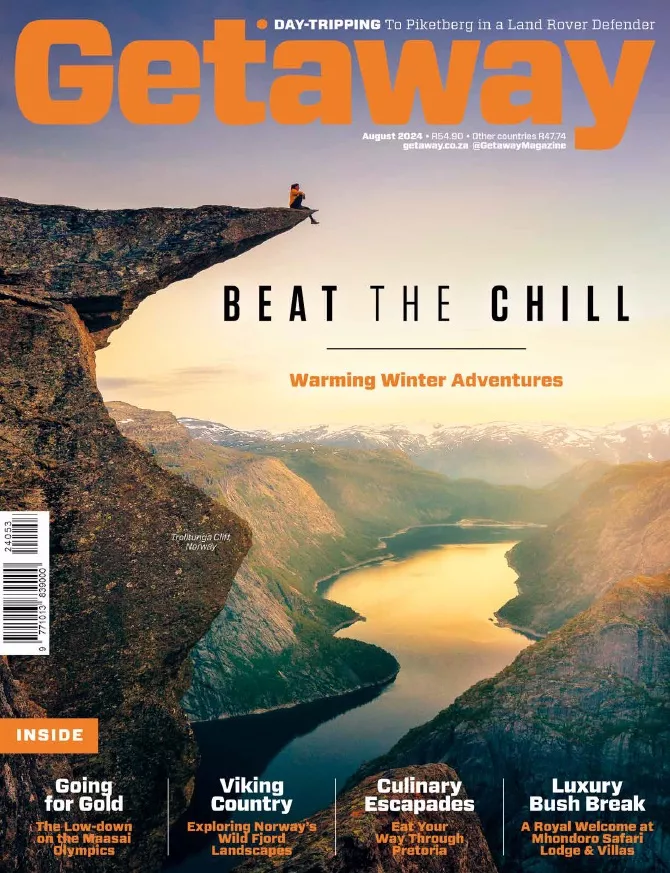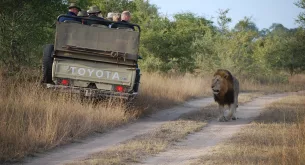A three-month-old female elephant calf was found in Maputo Special Reserve, Mozambique last week. The young calf was discovered alone, weak and dehydrated in the 120,000 hectare reserve, which is home to about 600 elephants. The reserve is also home to several villages, including the Muvucuza community, where people spotted the tiny elephant near their village and, realising her critical condition, tried to give her some water.
They then contacted the Reserve Managers, who put a call out to the National Administration of Conservation Areas (ANAC) and to Dr Joao Almeida of Saving the Survivors, a team of vets who treat wildlife that has survived poaching and other traumas.
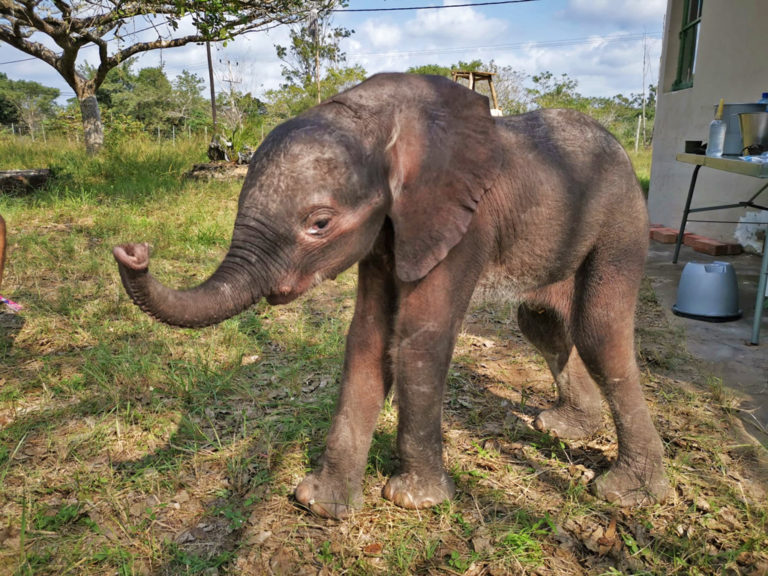
‘It’s a beautiful story,’ Dr Almeida says. ‘Within the Reserve, elephant numbers had increased over time causing human-elephant conflict within the community. Despite this, the community tried to help the calf and were concerned about its survival.’
Dr Almeida, who was treating buffalo in Limpopo Park at the time, contacted Dr. Michelle Henley from Elephants Alive in South Africa for potential financial assistance and logistical support. A generous donation from Blue Sky Society Trust swiftly followed, enabling Dr Almeida to fly to Maputo Special Reserve almost immediately.

Dr Joao Almeida takes a nap with the baby ellie. It’s due to the constant contact and care that she is regaining her strength so quickly.
Adine Roode from Hoedspruit Endangered Species Centre gave advice on the care needed for the fragile calf – elephant calves need 24-hour care, constant love and attention, and a very specialised milk formula. Dr Alemeida kept her alive on IV fluids for two days until Tuesday 7 May, when he managed to collect the formula using a helicopter funded by Blue Sky Society Trust and with the help of Kruger National Park rangers.
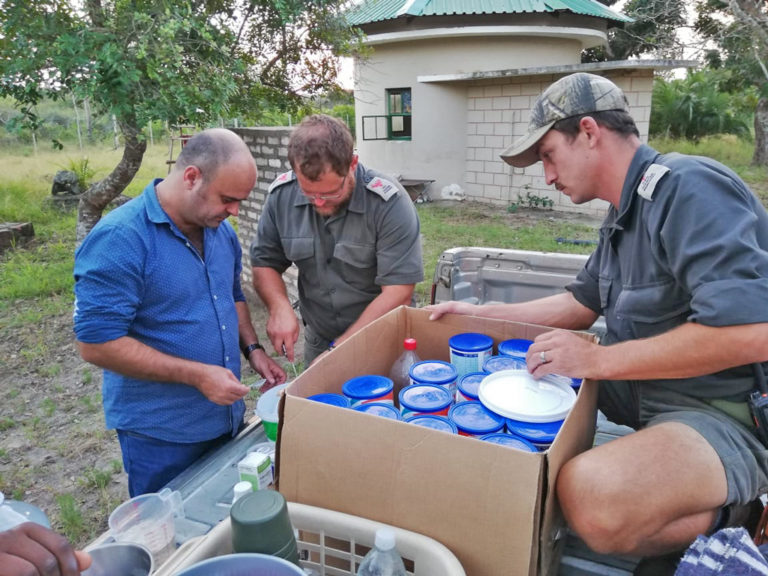
Miguel Goncalves, James Schuen and Dolf Botha of Dyck Advisory Group APU preparing the calf’s formula.
Elephants Alive, Blue Sky Society Trust and Saving the Survivors worked together to ensure that no less than three experienced caregivers are looking after the elephant on a rotational basis. Some caregivers flew in from Durban, others drove the vast distance from the Lowveld.
‘Maputo Special Reserve is very remote and we need people who know what they’re doing, we need a consistent team. It’s very important for her survival that the calf gets to know and trust the people who are caring for her’. Dr Almeida has been on constant call, and is feeling optimistic about the calf’s health. ‘She’s getting stronger every day and doesn’t appear to have any illness or injuries.’
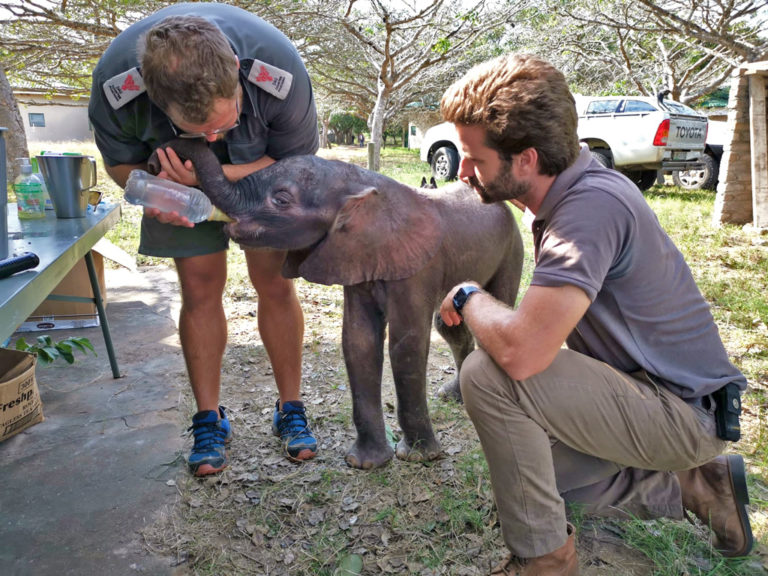
James Schuen of Dyck Advisory Group and Dr Joao Almeida of Saving the Survivors give the baby elephant a bottle of formula. She is fed every two hours.
In order to cater to the calf’s growing need, she will be transported to the Hoedspruit Endangered Species Centre as soon the South African Wildlife authorities give the go-ahead. ‘We are hoping a permit will be issued this week,’ says Dr Almeida.
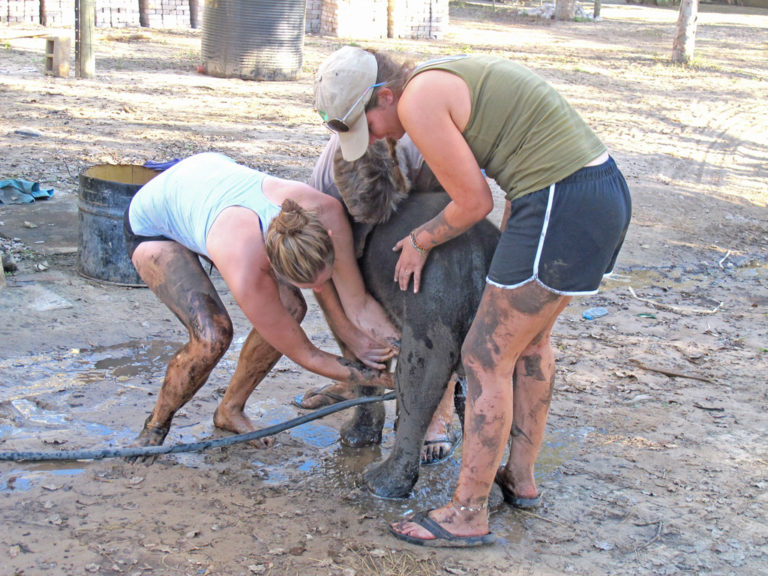
Volunteer carers give the baby ellie (and themselves) a mud bath, much to her delight.
A huge thanks to the following, all of whom have worked tirelessly to make this rescue operation possible: the Dyck Advisory Group APU, the National Administration of Conservation Areas (ANAC), Peace Parks Foundation, Blue Sky Society, Elephants Alive, Elephant Coast Company, Hoedspruit Endangered Species Centre, Saving the Survivors, and volunteers Leah, Kayla, Ellie, Graeme and Phil.
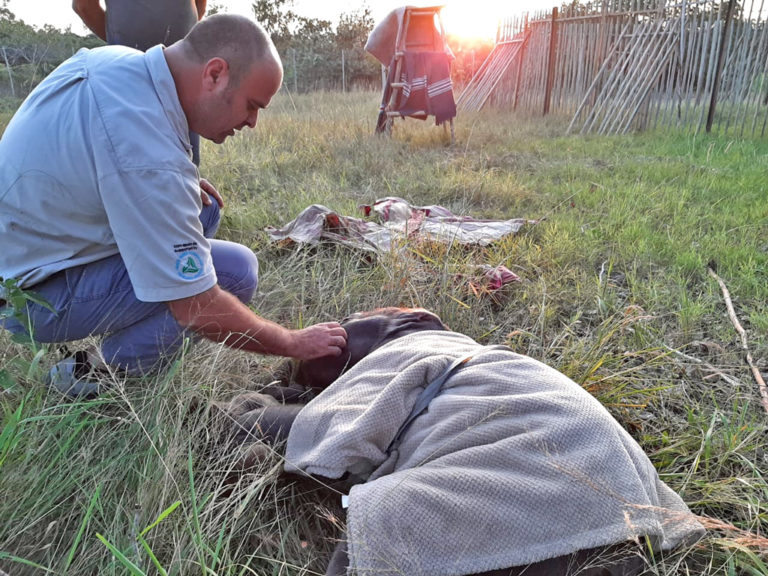
Miguel Goncalves, Warden of Maputo Special Reserve, checks she is warm and healthy.
To make a donation to help fund formula, medicine and other care for the baby calf, please visit: peaceparks.org/donate savingthesurvivors.org/donate
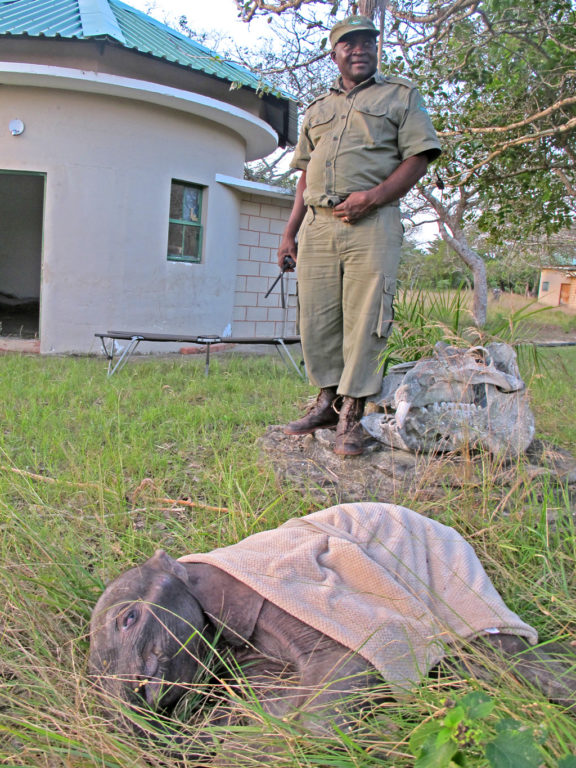
A ranger watches over the baby elephant.
Text: Louise Topping
Images: supplied

